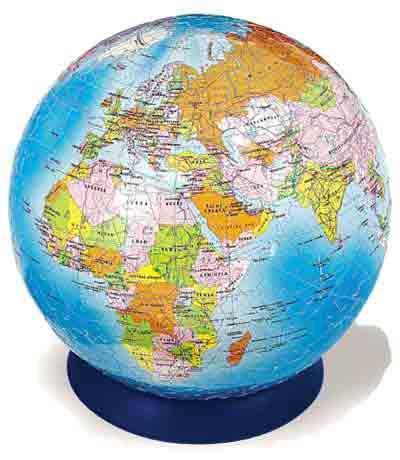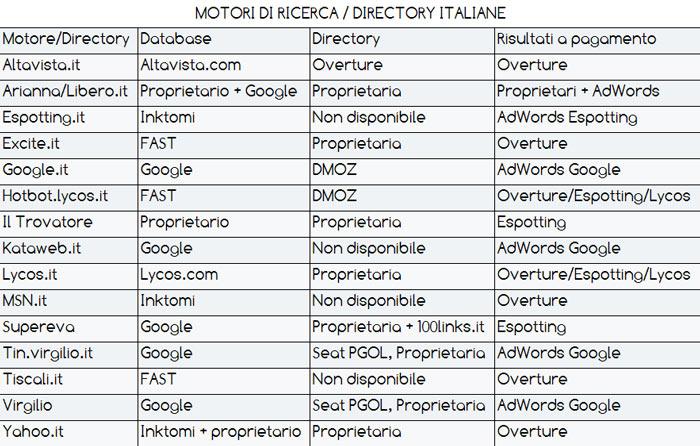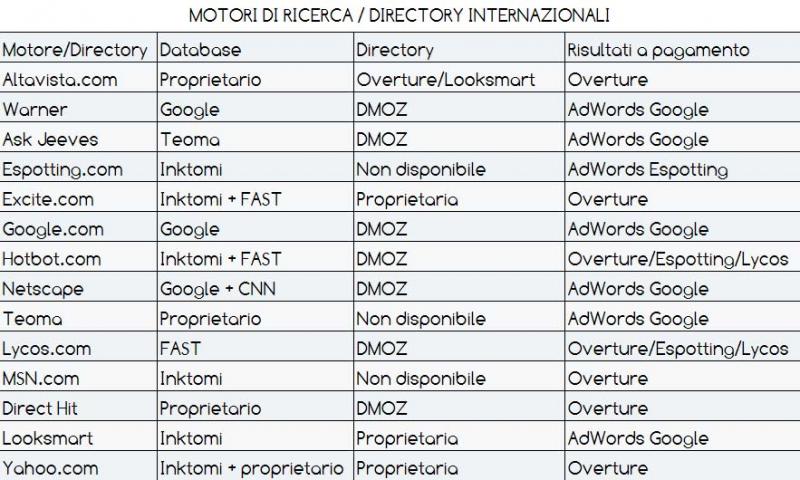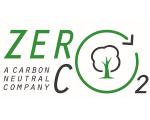Search engines playa fundamental role in the Web and they're the second most used service after e-mails.
Who manages and monitors the results of the search engines?
The results of an online research with an engine are classified broadly,  in 3 different types:
in 3 different types:
1) Results coming from the World Wide Web. They're the most common and most commonly used (for example, when you search on Google), and they guide the user into a website and not necessary at the home page of the same site.
2) Results coming from directories. Directories are a research tool in its own right. Unlike the previous category, user doesn't look for Websites through a keyword but by surfing into an archive, more or less complete. Substantially, it's a research similar to that one of a person who searches a book among the different shelves of a library.
The most complete and important directory in the world is DMOZ.
3) Paid results. They're results connected to a search through the two previous methodologies, but the owner of the site pays to appear in correspondence of a given keyword or directory. These results change according to the search engine and usually are pay per click, this is the site pays the search egines or the directory even if the user effectively comes into his/her website. These results, usually drive the user in the home page of the site.
An example of these results are the famous AdWords of Google.
A world of varied proposals
Internet presents lots of services of search engines and directories.
These 2 categories in DMOZ present within them more of 1,500 of results and surely a lot of persons are not included in DMOZ same. A so high number explains itself very easily, thinking that create a search engine hasn't high costs and doesn't present particular limits of access. At least it was in the days of the Internet boom.
Entering the present stage of Web, we saw 2 phenomena easily predictable: the death of lots of search engines and the concentration in few groups of a lot of persons that, maybe, maintain still alive the original brand. Actually, lots of search engines and directories exist only in nominal terms, while indeed they obtain their own results in outsourcing through other search engines.
For example, Yahoo! until few months ago used Google for its researches.

The location
A final market niche in which are still various search engines is connected to the geographic location of the website, both in linguistic terms both in physical ones: this limited space is however getting thinner and thinner because the international search engines activated – or they're goingo to do it – some detection systems both of language localization both geographical one (you can think for example to the present function in different search engines: "Search only in italian").
Search engines and directories
Below, we propose a classification of the search engines and directories according to the listed criteria. For convenience of reader they have been distinct in italian and international criteria.
Tables can't be exhaustive and the speed wherewith this segment of market changes could bring out errors and inconsistencies. Remain exemplary considerations made previously and can give a summary table of the complessive situation.


From this classification we can easily notice how there's a strong concentration of some actors, dispersed in a varied number of brands. Probably, different brands will vanish few at a time.
So, who are the protagonists?
Talking about results through search engines,without considering the use of users is Inktomi (bought by Yahoo! in 2003 for 230 million dollars and unknown to many Web users) who does the lion's share, immediately followed by Google and FAST.
About the directories, instead, firstable protagonist is DMOZ: the mondial free and biggest directory managed completely by unpaid volunteer editors.

In conclusion, the paid results. In this case, the concentration is even more higher compared to the previous cases and the principle protagonists are 3: Google, Espotting and Overture.
All these 3 actors use the method of pay per click with auction on keywords.
The sector is still far from being stabilized and in future there will be important changes and further concentrations.
Moreover at italian level, is predictable that big international actors will achieve completely the Italian search engines generalists in a strategy of immediate growth for different local areas.















